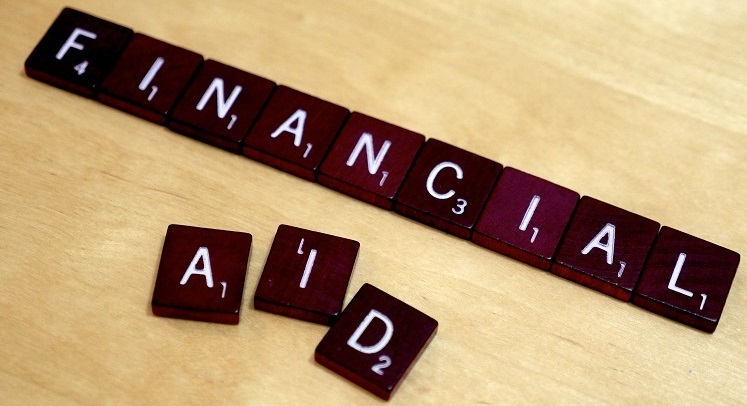It is very common for students to drop out of school for many reasons like personal emergencies, educational struggles, or simply not liking their chosen educational path. Withdrawing from school affects your tuition assistance and protracted eligibility for extra aid.
If you are thinking of quitting school, you might be concerned about your financial aid. So, if you are thinking, what happens if I drop out of school with financial aid? We are here to help you out!
What Happens If I Drop Out Of School With My Financial Aid – Everything You Should Know
Here we are with all the details regarding your financial aid queries:
Dropping Out & Financial Aid
Dropping out due to academic, familial issues, or personal is sometimes inevitable, but it can severely harm your financial assistance situation. How it affects various forms of financial aid:
Pell Grant Federal Student Aid
A Pell Grant recipient who drops out of school may have to refund some of the amounts of the grant. The school will determine your debt, so approach the financial aid office for specifics.
You can pay the school in full or arrange a payment plan. In case of non-payment, they may transfer the debt into collections. They may deny deferred federal financial help until the award is repaid.
Student Loan Impact On Financial Aid
If you work less than part-time, your loan payments will be due. But if you drop out and can't pay your loans, you will be eligible for deferral and forbearance. Choosing an IDR plan, your monthly payment will be based on your current earnings. If you have government student debts, there are loan forgiveness options for dropouts.
Federal student debt has a lifetime borrowing cap. If you drop out and then return to school, you may not even be able to refinance as much as you thought.

Scholarships And Withdrawing From School
Many scholarships require you to finish an academic year or earn a degree. If you leave before that, though, you may have to compensate for the funds. Some schools also provide emergency relief to students in need of financial assistance. Ask your school's financial assistance office about it and how to apply.
The best thing would be to discuss with the school's administrator and try to find a solution that is beneficial for you while not affecting your financial aid.
You can always explore your career options or change your path instead of quitting outright.
However, if your school doesn't have much to offer in terms of assistance, you may consider a different college or online courses to continue your studies.
How to Withdraw?
You must notify school administrators before departing. This way, the school can track your withdrawal date and calculate your last semester's financial aid. If you fail to do so, the school may track your withdrawal date and refuse to grant you a refund.
When withdrawing from a course, make sure that you are following the proper channels to avoid incurring penalties or delays in future refunds. If you think about it, filing for withdrawals can be quite complicated because there are different policies at every college or university regardless of whether they use semester or quarterly terms. To make things easier, create a timeline ahead of time to help you plan your academic progression accordingly before withdrawing completely.
Less money than the school got may be yours to keep. If not, you'll be charged the difference.
Is It Preferable to Withdraw Or Fail?
If you drop out of school, you may be qualified for a tuition return. Not doing anything and failing your classes may result in full payment even if you did not show up at classes and tests.
It is always preferable to leave school voluntarily than to fail. A failing grade affects your overall GPA and is recorded on your school transcript. It may impact your future ability to return to school or grad or professional school. Even if you don't plan to return to school, notify the university.
Withdrawing doesn't appear negative on your higher studies resume. If you decide to continue with the same degree program later, they will understand your past difficulties.
If you decide to completely withdraw from the same program, the school will report your withdrawal due to dropout and likely record a W on your transcript, which is a negative grade. But this can also help you change your mind about the education path and make a comeback with a better grade point average.

Do You Have to Pay Back Your Financial Aid?
You do not have to pay back your financial aid even if you drop out immediately after receiving it. When you file for withdrawal from school, they will calculate what portion of the term's financial assistance remains unused and refund that amount appropriately. They will then prorate the remainder to cover other expenses such as housing or equipment return fees.
It depends on when you withdraw and how much money is left in your tuition account at that time:
- If you withdraw within the first two weeks of the semester, 100 percent of your financial aid will be returned to its sources. Your school may require you to pay for any outstanding fees and charges at that time.
- If you withdraw during the third week through the ninth week of a semester, your school would be required to return 50 percent of your financial aid. The remaining 50 percent will go towards covering other fee amounts such as housing, equipment, or lab fees.
- If you withdraw after the tenth week at a college or mid-term point in high school, 30 percent of your financial aid is refunded along with 70 percent going toward other expenses such as housing and equipment.
Regardless of where you fail to complete more than 60% of the term, you will have a "W" grade recorded on your transcript. The 30% withdrawal rule is only for colleges and high schools that use quarter systems instead of semester terms.
Financial aid may be applied to an alternative or future term if you withdraw before the refund date mentioned in the school catalog, but only if there are no changes to eligibility requirements such as maintaining satisfactory academic progress.
What If I Am Graduating?
Your financial aid might be affected by graduating early:
If you graduate early without applying for financial assistance for the summer, your college or university can make any refunds due and reduce your financial aid amount appropriately. So it would be wise to apply and qualify for financial assistance ahead of time. They cannot provide a refund until they verify that you have graduated.
If you successfully complete your degree program before the deadline and graduate early, you can still earn a proportionate amount of financial aid for the term since it is less than full-time enrollment. Most schools require students to be enrolled in courses throughout the semester to qualify for any refund amounts.
What If I Am Withdrawing Or Dropping Out Before Starting Classes?
If you drop out or withdraw before classes begin, your school will not transfer equipment charges nor will they record an academic status on your high school transcript unless they are retaining you as part of their future student intake review process. They may provide housing charges if necessary but no other refunds would be made at that. These charges are non-refundable even if you have already paid upfront.

What If I Missed The Deadline To Drop Out?
Some colleges and universities may require students to file their withdrawals within the first two weeks of starting classes. If this is not so, it will be your responsibility to notify your school's registrar before the stated deadline in the catalog regarding tuition refunds. Failure to do so might lead to a financial aid penalty or delay future refunds. Even if you are withdrawing for whatever reason during that time, you also have to fill out an intent clause form that states that you will be leaving permanently or withdrawing from attendance indefinitely.
What Happens If My School Goes Bankrupt?
If your school goes bankrupt while receiving federal financial assistance, there should still be provisions in place to ensure that federal educational loans are repaid. This is not the case with private loans, so you should also check your lender's policies regarding what would happen if your school closes.
Note: If there is no tuition refund policy stated in the catalog, contact the financial aid office directly for more information on what will happen to your fees and refunds.
Schools That Follow The 30% Rule:
Although some schools follow the 30% rule, others may have a different financial aid refund policy based on their own discretion. Contact them directly for more details on this matter before withdrawing or dropping out from a course entirely.
Bottom Line
To avoid losing federal and state subsidies, be aware that your school may have to cancel others. Finally, you will not qualify for some funding and must repay any outstanding loans. We hope this information will help you make the right decision.